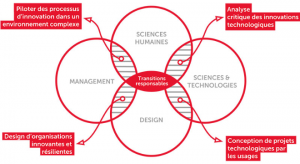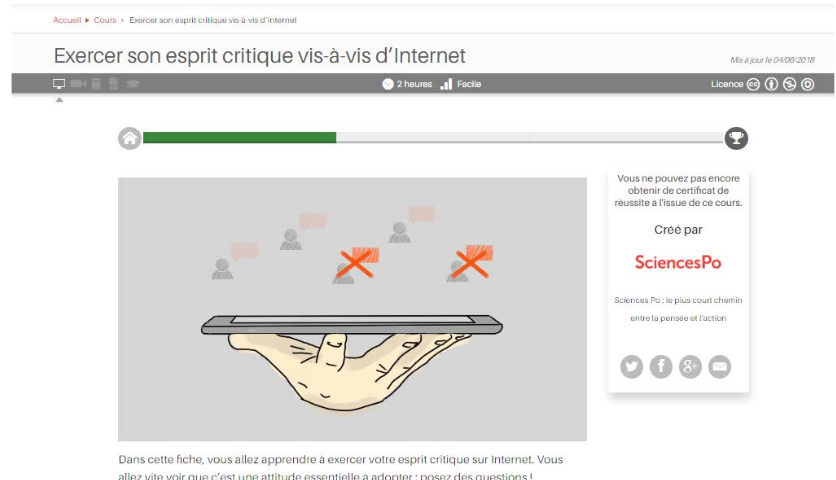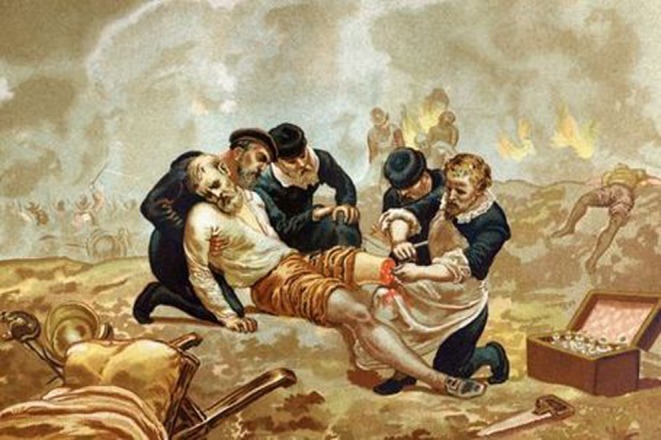


Cogito n°5
27 November 2018
Directory of Researchers, Engineers and PhD candidates working on Digital Issues
6 May 2019Since the transmission of knowledge is a major objective of research, the academic community is also involved in the development of a growing course offering.
Curriculum and courses

Pedagogical diagram of the Master of Innovation & Digital Transformation, School of Management and Innovation. Copyrights : Sciences Po
The pioneering medialab created a digital course offering in 2012 with the development of a program to train through controversy mapping (Forccast) as part of an excellence initiative in innovative training.
This program grew with the addition of courses and curriculums focused on digital issues, particularly the “Digital culture” course taught to all second-year students.
At the masters level, several schools offer complete curriculums today: the masters in Digital, New Technology and Public Policy at the School of Public Affairs, the masters in Innovation and Digital Transformation within the School of Management and Innovation, and the “Digital technology and development” track at the School of Journalism. In addition to these curriculums, elective courses are offered, such as “Governance of the digital transformation” and “Aspects and challenges of the digital economy”; not to mention courses that do not focus on digital technology but examine its practices and issues in their respective disciplines.
Innovative projects such as the virtual museum of justice (fr) are also produced in collaboration with students, teachers, researchers, and professionals in law and justice. Other offerings include pedagogical formats that grant an important role to digital technology opportunities supported by the Center for digital experimentation (fr): e-courses, digital practice workshops, reverse classes, Small Private Online Courses (SPOC), and Massive Open Online Courses (MOOC) – eight have been offered to date. The Mapping Workshop (fr) contributes its wealth of resources and tools to these initiatives. Meanwhile, Executive Education offers digital courses like the Digital and organizational transformation (fr) cycle.
New chairs
The links between research and teaching are also central to new chairs: :
- Launched in March 2017, the Cities and digital technology chair organizes research and teaching within the Urban School, in partnership with the Center for European Studies and Comparative Politics. Devoted to the transformation of cities under the digital revolution, this chair seeks to develop teaching and research on these issues by associating leading businesses and organizations with the Urban School of Sciences Po, its students, its researchers, and its partners.
- Inaugurated in February 2018 by the School of Public Affairs, the Digital technology, governance, and institutional innovation chair mobilizes all of Sciences Po’s research units. With a mission of contributing to the development of national and international economic and social innovation by jointly building public policies and business models adapted to the digital era, it aims to create an ecosystem to bring the world of technological companies closer to the world of academic research, the political world, civil society, and incubators for public policies and digital regulation.
To be red




